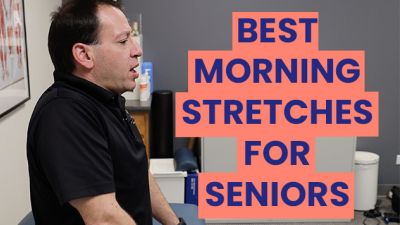Select Category...
Active 55+ Retirement Communities
Adult Day Care
Agencies on Aging
Alzheimer’s & Memory Care Communities
Assisted Living Facilities
Audiologists & Hearing Aids
Bathroom Conversion & Equipment
Care Management
Dentists & Dentures
Disease Specific Organizations
Elder Abuse Protection
Elder Law Attorneys
Funeral Homes
Home Health Care
Hospices
Hospitals/Medical Centers
Independent Living
Medicare Specialists
Personal Care Homes (Group Homes)
Rehabilitation Hospitals
Reverse Mortgage
Senior Centers
Skilled Nursing Homes
Veteran Services
Vision Care
Wheelchair Ramps & Stair Lifts
Wheelchairs and Walkers
Select City/State...
Albuquerque, New Mexico
Asheville, North Carolina
Atlanta, Georgia
Austin, Texas
Baton Rouge, Louisiana
Birmingham, Alabama
Charleston, South Carolina
Charlotte, North Carolina
Chattanooga, Tennessee
Chicago, Illinois
Cincinnati, Ohio
Cleveland, Ohio
Columbia, South Carolina
Columbus, Ohio
Corpus Christi, Texas
Dallas, Texas
Dayton, Ohio
Denver, Colorado
Des Moines, Iowa
Detroit, Michigan
El Paso, Texas
Florence, Alabama
Houston, Texas
Huntsville, Alabama
Indianapolis, Indiana
Jacksonville, Florida
Knoxville, Tennessee
Lafayette, Louisiana
Las Vegas, Nevada
Lexington, Kentucky
Los Angeles, California
Louisville, Kentucky
Madison, Wisconsin
Memphis, Tennessee
Miami / SE Florida
Milwaukee, Wisconsin
Minneapolis, Minnesota
Nashville, Tennessee
New Orleans, Louisiana
New York City, New York
Oakland, California
Oklahoma City, Oklahoma
Omaha, Nebraska
Orlando, Florida
Philadelphia, Pennsylvania
Phoenix, Arizona
Pittsburgh, Pennsylvania
Portland, Oregon
Provo-Orem, Utah
Sacramento, California
Salt Lake City, Utah
San Antonio, Texas
San Diego, California
San Francisco, California
Santa Fe, New Mexico
Seattle, Washington
St Louis, Missouri
Tallahassee, Florida
Tampa, Florida
Tuscon, Arizona
Go
Select Category...
Active 55+ Retirement Communities
Adult Day Care
Agencies on Aging
Alzheimer’s & Memory Care Communities
Assisted Living Facilities
Audiologists & Hearing Aids
Bathroom Conversion & Equipment
Care Management
Dentists & Dentures
Disease Specific Organizations
Elder Abuse Protection
Elder Law Attorneys
Funeral Homes
Home Health Care
Hospices
Hospitals/Medical Centers
Independent Living
Medicare Specialists
Personal Care Homes (Group Homes)
Rehabilitation Hospitals
Reverse Mortgage
Senior Centers
Skilled Nursing Homes
Veteran Services
Vision Care
Wheelchair Ramps & Stair Lifts
Wheelchairs and Walkers
Select City/State...
Albuquerque, New Mexico
Asheville, North Carolina
Atlanta, Georgia
Austin, Texas
Baton Rouge, Louisiana
Birmingham, Alabama
Charleston, South Carolina
Charlotte, North Carolina
Chattanooga, Tennessee
Chicago, Illinois
Cincinnati, Ohio
Cleveland, Ohio
Columbia, South Carolina
Columbus, Ohio
Corpus Christi, Texas
Dallas, Texas
Dayton, Ohio
Denver, Colorado
Des Moines, Iowa
Detroit, Michigan
El Paso, Texas
Florence, Alabama
Houston, Texas
Huntsville, Alabama
Indianapolis, Indiana
Jacksonville, Florida
Knoxville, Tennessee
Lafayette, Louisiana
Las Vegas, Nevada
Lexington, Kentucky
Los Angeles, California
Louisville, Kentucky
Madison, Wisconsin
Memphis, Tennessee
Miami / SE Florida
Milwaukee, Wisconsin
Minneapolis, Minnesota
Nashville, Tennessee
New Orleans, Louisiana
New York City, New York
Oakland, California
Oklahoma City, Oklahoma
Omaha, Nebraska
Orlando, Florida
Philadelphia, Pennsylvania
Phoenix, Arizona
Pittsburgh, Pennsylvania
Portland, Oregon
Provo-Orem, Utah
Sacramento, California
Salt Lake City, Utah
San Antonio, Texas
San Diego, California
San Francisco, California
Santa Fe, New Mexico
Seattle, Washington
St Louis, Missouri
Tallahassee, Florida
Tampa, Florida
Tuscon, Arizona
Go











